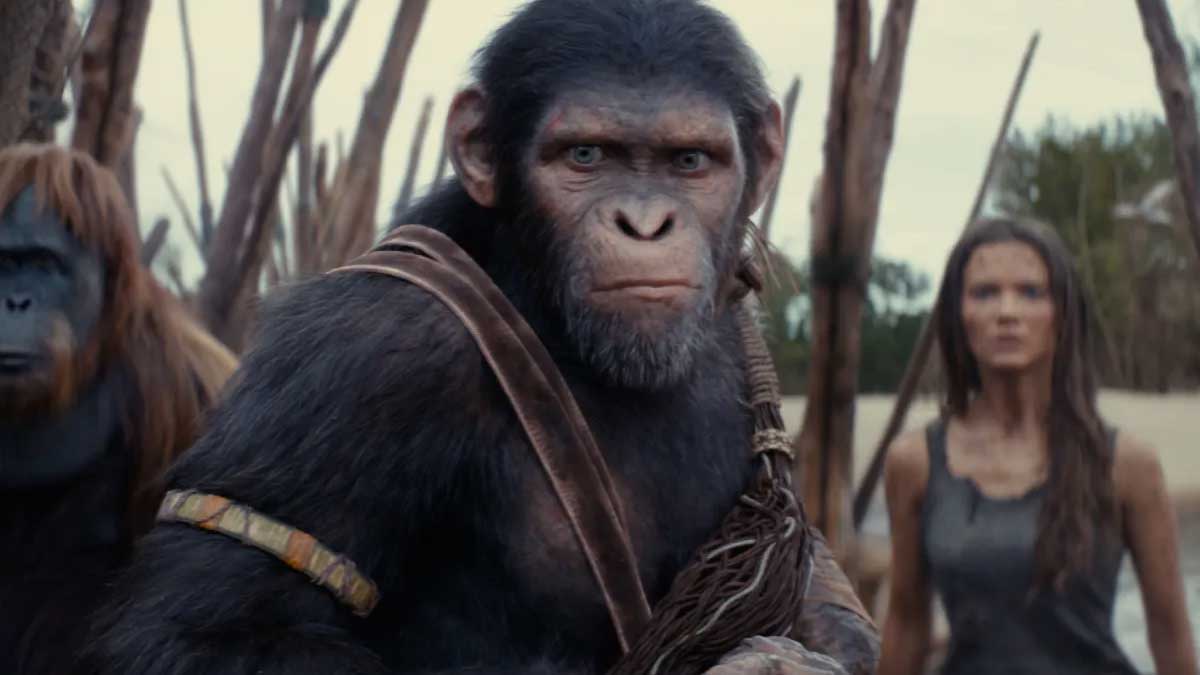- Home
- Billionaires
- Investing Newsletters
- 193CC 1000
- Article Layout 2
- Article Layout 3
- Article Layout 4
- Article Layout 5
- Article Layout 6
- Article Layout 7
- Article Layout 8
- Article Layout 9
- Article Layout 10
- Article Layout 11
- Article Layout 12
- Article Layout 13
- Article Layout 14
- Article Sidebar
- Post Format
- pages
- Archive Layouts
- Post Gallery
- Post Video Background
- Post Review
- Sponsored Post
- Leadership
- Business
- Money
- Small Business
- Innovation
- Shop
Recent Posts
“Kingdom of the Planet of the Apes” Ends Without Teasing Sequels

“Kingdom of the Planet of the Apes” marks the fourth chapter in a series of reimagined films inspired by the iconic “Planet of the Apes” franchise. Unlike its predecessors, “Kingdom” concludes without a post-credits scene, a common device in modern franchises to hint at future installments. This absence, however, does not necessarily signify the end of the saga, leaving room for potential sequels or spin-offs.
The “Planet of the Apes” reboot series commenced in 2011 with “Rise of the Planet of the Apes,” followed by “Dawn of the Planet of the Apes” in 2014 and “War for the Planet of the Apes” in 2017. The narrative centers on Caesar, a chimpanzee portrayed through groundbreaking motion-capture performance by Andy Serkis. Caesar undergoes rapid evolution after accidental exposure to an experimental substance, leading to his eventual leadership of the ape community.
“War for the Planet of the Apes” marked the culmination of Caesar’s journey, and after a seven-year hiatus, “Kingdom of the Planet of the Apes” revives the franchise under the direction of Wes Ball. The film introduces a new setting and characters, including Noa, a young chimpanzee, and Raka, an orangutan, who join forces with a human named Mae to resist Proximus Caesar, a tyrannical bonobo. Their struggle centers around a vault believed to contain advanced human weaponry, which Proximus aims to control to secure his dominance.
Despite the lack of a traditional end credits scene, “Kingdom” ends on a tantalizing note, suggesting a potential return to the original 1968 “Planet of the Apes” storyline. This connection is hinted at through scenes set in a dilapidated space observatory, where both human and ape characters observe the cosmos with a mix of awe and apprehension. These moments evoke the mysteries of the lost spaceship Icarus mentioned in “Rise of the Planet of the Apes,” offering a bridge between the modern reboot series and the classic films.
Financially, “Kingdom of the Planet of the Apes” is poised for success, with industry projections anticipating a strong opening weekend. Deadline forecasts a domestic box office of $50 million and an international take of $80 million, indicating a worldwide total of $130 million. Such returns would likely justify further entries in the franchise, particularly given the positive critical reception of “Kingdom,” which currently holds an 83% “fresh” rating on Rotten Tomatoes based on 139 reviews.
Ultimately, the fate of the “Planet of the Apes” franchise rests on audience reception. If “Kingdom” proves to be as engaging to viewers as it has been to critics, the future may hold many more adventures in this reimagined world of apes and humans.
Recent Posts
Categories
- 193cc Digital Assets2
- 5G1
- Aerospace & Defense46
- AI37
- Arts3
- Banking & Insurance11
- Big Data3
- Billionaires449
- Boats & Planes1
- Business328
- Careers13
- Cars & Bikes76
- CEO Network1
- CFO Network17
- CHRO Network1
- CIO Network1
- Cloud10
- CMO Network18
- Commercial Real Estate7
- Consultant1
- Consumer Tech180
- CxO1
- Cybersecurity68
- Dining1
- Diversity, Equity & Inclusion4
- Education7
- Energy8
- Enterprise Tech29
- Events11
- Fintech1
- Food & Drink2
- Franchises1
- Freelance1
- Future Of Work2
- Games141
- GIG1
- Healthcare78
- Hollywood & Entertainment186
- Houses1
- Innovation42
- Investing2
- Investing Newsletters4
- Leadership65
- Lifestyle11
- Manufacturing1
- Markets20
- Media193
- Mobile phone1
- Money13
- Personal Finance2
- Policy567
- Real Estate1
- Research6
- Retail1
- Retirement1
- Small Business1
- SportsMoney33
- Style & Beauty1
- Success Income1
- Taxes2
- Travel10
- Uncategorized8
- Vices1
- Watches & Jewelry2
- world's billionaires418
Related Articles
Kraven the Hunter Struggles Without Spider-Man
Sony’s Kraven the Hunter experienced a catastrophic debut at the box office,...
By 193cc Agency CouncilDecember 16, 2024Peter Watts on Shaping the Armored Core Story in Secret Level
Peter Watts, a celebrated science fiction author best known for his novel...
By 193cc Agency CouncilDecember 16, 2024Turning Sony’s Spider-Man Spinoffs into Success
Sony’s Spider-Man Universe (SSU) of spinoffs has struggled to live up to...
By 193cc Agency CouncilDecember 12, 2024‘Star Wars: Skeleton Crew’ Faces Budget-Viewership Challenge
“Star Wars: Skeleton Crew” has made a strong impression with its first...
By 193cc Agency CouncilDecember 11, 2024















Leave a comment